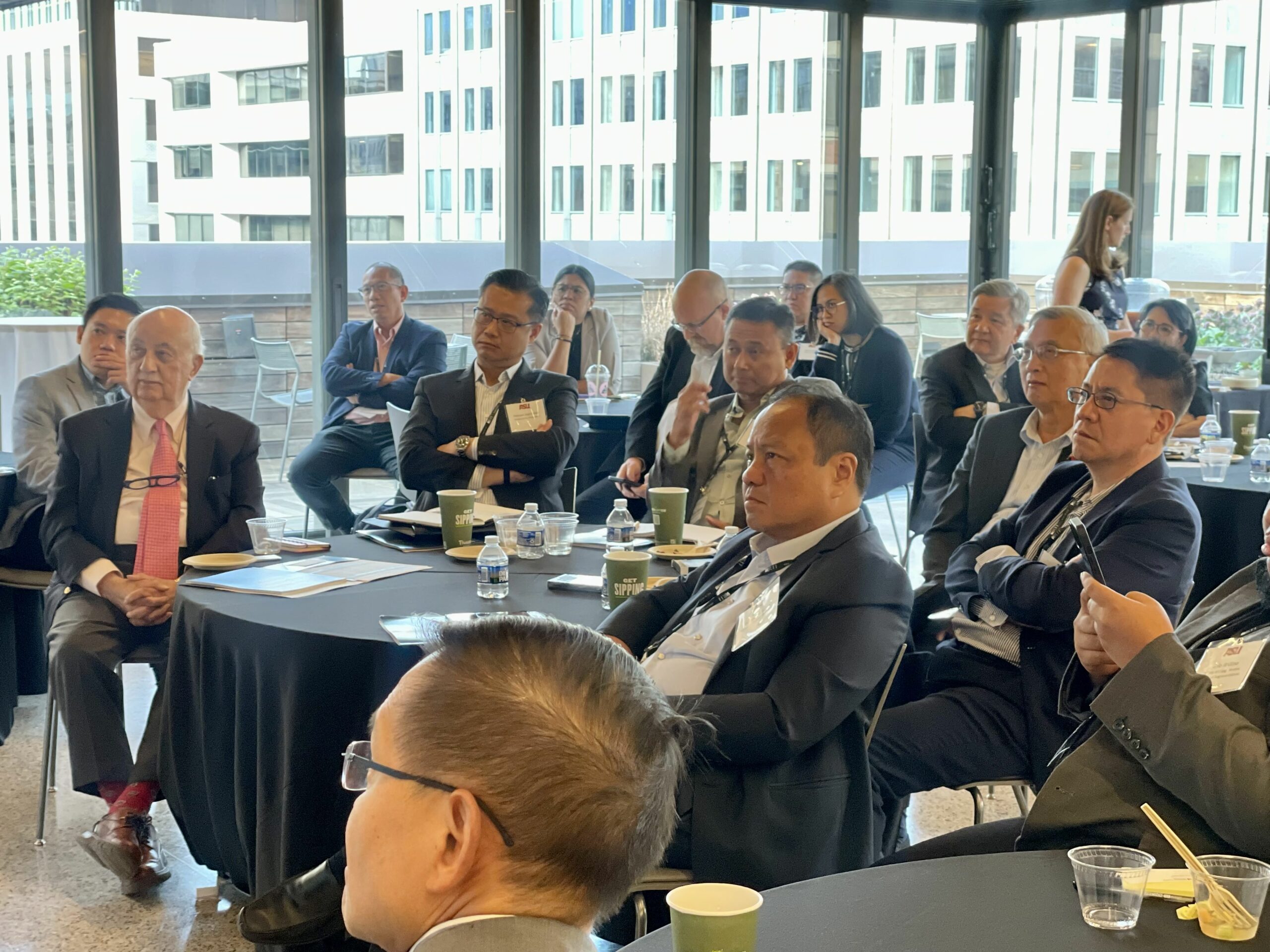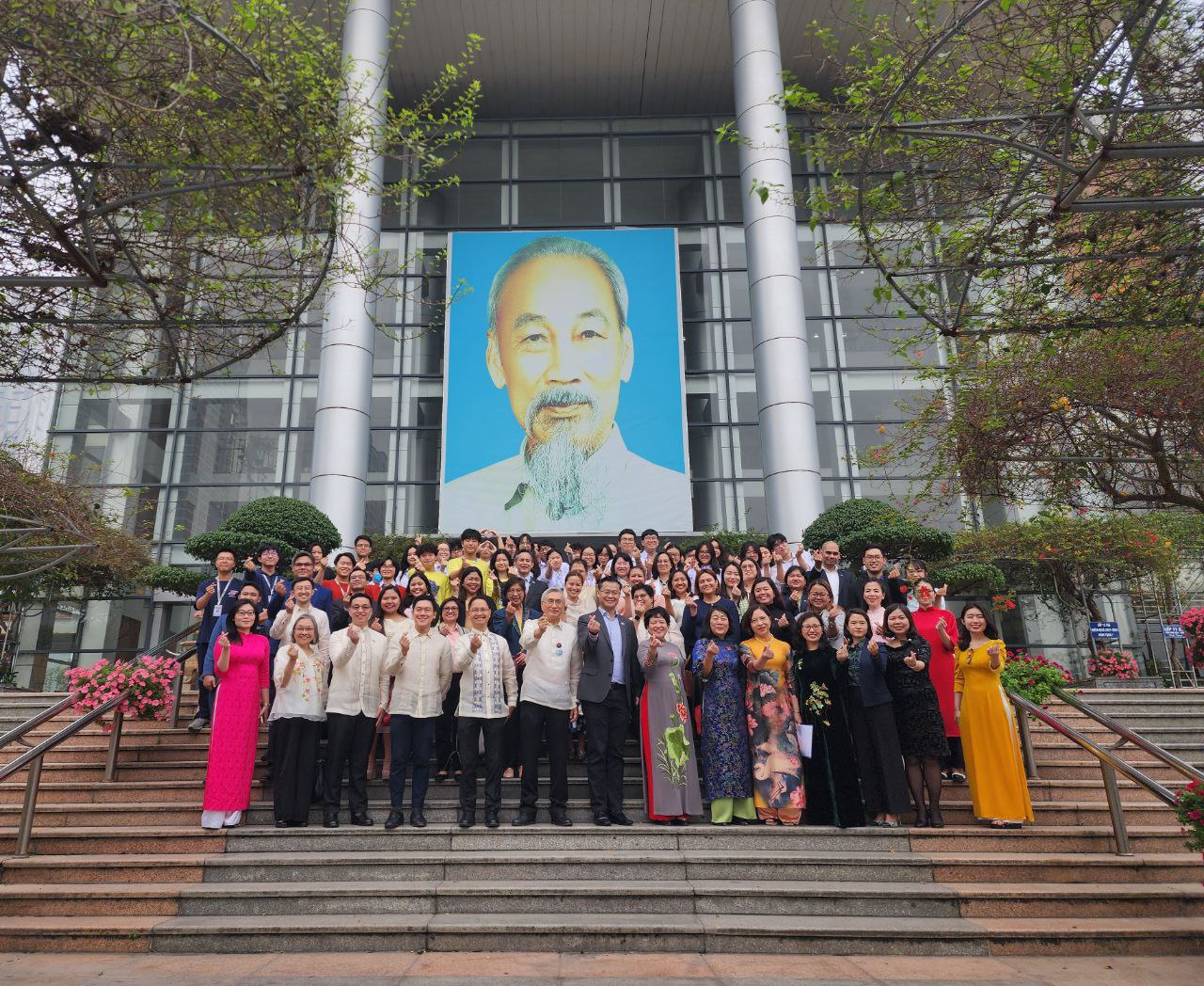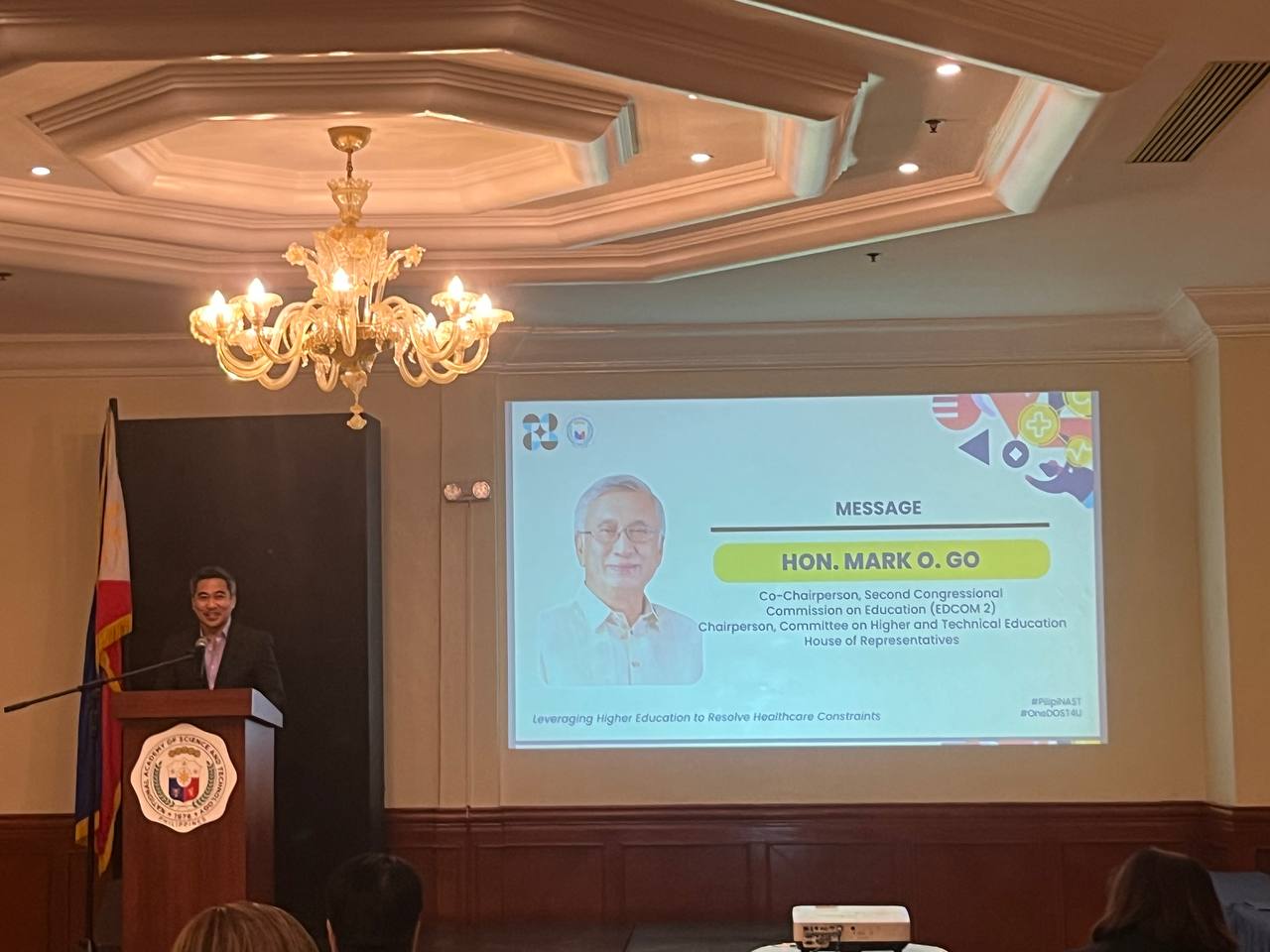Delivered by EDCOM 2 Chief Legal Officer Atty. Joseph Noel Estrada, on behal of Honorable Mark Go, Representative of the 19th Congress:
Good morning. Happy Season of Easter, everyone!
At the outset, may I thank the Department of Science and Technology – National Academy of Science and Technology Philippines for having organized this forum, a Science Policy Forum on Leveraging Higher Education to resolve Healthcare Constraints.
May I also acknowledge Academician Jaime C. Montoya, President and Chair – Health Sciences Division (NAST Philippines); Secretary Teodoro J. Herbosa of the Department of Health; Dr. J. Prospero De Vera III, Chairperson of the Commission on Higher Education; Usec. Hans Leo J. Cacdac, Officer-in-Charge of the Department of Migrant Workers; our National Scientist Carmencita D. Padilla, Member of the Health Sciences Division (NAST Philippines); Dir. Johanna S. Banzon of the Health Human Resource Bureau (Department of Health); Dr. Jose Y. Cueto, Jr., Commissioner of the Professional Regulation Commission; Dr. Fely Marilyn E. Lorenzo, Retired Professor from the College of Public Heath, University of the Philippines Manila; Dr. Joselito F. Villaruz, President of West Visayas State University; and friends, thank you for your collective support.
I understand that the Hon. Senator Pia S. Cayetano, a Commissioner of the Second Congressional Commission on Education will be giving her message on Day 2 April 18, 2024, and subsequently, Dr. Alvin P. Ang, the Chair of the Department of Economics of Ateneo de Manila University. And finally, Hon. Senator Sonny M. Angara, a Commissioner of the Second Congressional Commission on Education will do his sharing on Day 3 April 23, 2024, together with Ms. Rosanna A. Urdaneta, Deputy Director General for Policies and Planning, Technical Education and Skills Development Authority.
One reason why we are gathered today is to look for a long-term solution, or to resolve the issue surrounding the shortage or deficit of healthcare workers and professionals in the Philippines. The retention of our healthcare workforce in our country must be based on a solid framework which affords an atmosphere of continuous professional growth, decent working environment, guaranteed tenure and decent pay, and more importantly, respect.
It is quite disheartening to know that Philippines lags behind among countries which deliver optimum healthcare. I am thinking now of an incident where a patient had to be transported across the seas from an island to another for a two-to-three-hour trip because a local hospital is not equipped to deal with the patient’s case, as it lacks expertise.
So, where do we begin with our colossal fight to persuade our healthcare workers and professionals to stay in our country and serve?
I must think that we begin with taking good care of individuals who have manifested their desires to study and pursue employment in health-related field or profession. This is where Higher Education Institutions are relevant, in the sense that they forge the pathway of developing the would-be medical and health practitioners. Thus, there is a need to revisit and re-assess the operative value of our curricula. How much do we give importance to research and innovation? Do our schools and universities continue to pursue collaborative efforts with hospitals to determine the effectiveness of new drugs, medical devices, or treatment protocols?
How about our scholarship to poor but deserving candidates for the medical profession or other health-related degrees? Have we looked into the terms of agreement as to secure their service to our country?
It is also interesting to ask whether our universities and schools create interdisciplinary programs that bring together students from various fields like medicine, engineering, business, and social sciences. As a result, these programs foster innovative thinking among the students.
On the other hand, it is also imperative to look into the extension services of our universities and schools where they can regularly organize health camps especially in the promotion of preventive care and health education.
Universities can contribute to healthcare policy discussions by conducting research, analyzing data, and proposing evidence-based solutions. Collaborating with policymakers and healthcare institutions, they can advocate for reforms and implement best practices.
Decisively, universities often generate valuable intellectual property through research. Collaborating with healthcare institutions, they can transfer technology, patents, and innovations to the industry. Startups incubated within universities can develop healthcare solutions, from telemedicine platforms to diagnostic tools. One great example of a telemedicine platform is the RxBox created by University of the Philippines (UP) Manila National Telehealth Center (NTHC) in collaboration with the Department of Science and Technology. Its importance is widely felt among those who live in far-flung barangays.
As Chairman of the Committee on Higher Education in the Lower House, it is my utmost prayer and advocacy that before my term of office ends next year, I could, with your professional help, take a lead in the creation of a transformative policy on healthcare, especially viable programs that would persuade healthcare workers and professionals to remain in our country to serve. This is our collective task.
There will always be constraints along the way and it would be too ambitious to be like Singapore right away in the delivery of healthcare, but at least, we make an honest effort of resolving those constraints.
I am pretty aware that the “green pasture” outside our country for our healthcare workers and professionals is vibrantly lusher and richer, but I could only hope that the idealism of our healthcare practitioners outweighs the pragmatist considerations in relation to the retention of their profession. Well, I am talking about a possibility which only be sustained if, within the limits of our resources, we are providing a sense of decent life to our healthcare practitioners, a sense of respect to their sacrifices.
For three separate days, we will be listening to inputs and we will be reflecting on the wisdom of our resolutions for healthcare constraints. Let us do this – and let us work together until sometime or somewhere, another Filipino in a far-flung barangay has survived because one doctor has chosen to be available for him.
Thank you very much, and once again, magandang umaga po sa ating lahat.




